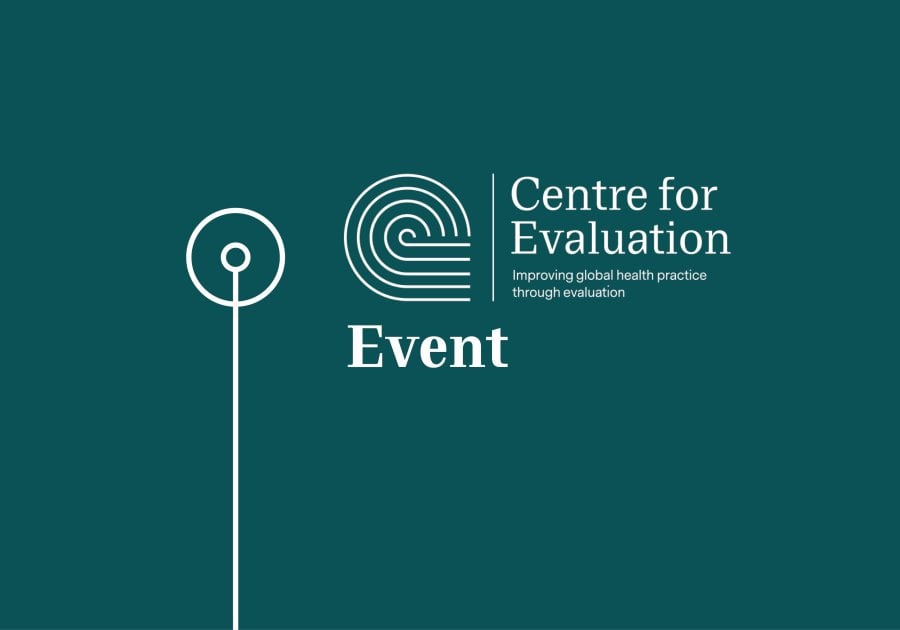Optimising programming for effective coverage using embedded Programme Science

Managing global epidemics of HIV and other sexually transmitted and blood-borne infections (STBBI) requires improvements in context-specific programming that prioritise optimising service coverage, strengthening routine program monitoring systems, achieving equity in health outcomes, and having measurable impact at the population-level. Programme Science provides a framework for embedding research and learning into public health programs to generate contextualised knowledge and evidence that can be used improve program outputs and outcomes through incremental adjustments in program strategy and implementation. An inherently equity-focused approach to both research and programming, Programme Science is concerned with optimising programming that prioritises service coverage and resource allocation for populations who will benefit the most.
Through this webinar, the speakers will provide an overview of the conceptual underpinnings of Programme Science, highlighting strategies for embedding science, research, and learning into public health programs. They will then introduce a novel Programme Science tool, the Effective Program Coverage framework for public health programs that focuses on developing research agendas to identify, quantify, examine, and address gaps in health service coverage through an equity lens. Concrete examples from a recent study in Nairobi, Kenya will highlight how a Programme Science approach, using embedded science and the Effective Program Coverage Framework, can been operationalised to inform HIV and STBBI programs for key population programmes and optimise population-level outcomes.
Speakers
- Marissa Becker, MD, MSc Public Health, Professor, Institute for Global Public Health, University of Manitoba
- Parinita Bhattacharjee, MSc Director and Program Delivery at Institute for Global Public Health, University of Manitoba Technical & Advisor, Partners for Health and Development in Africa
Parinita Bhattacharjee, based in Nairobi, Kenya, has 25 years of professional experience in the global health sector ranging from HIV and AIDS to sexual and reproductive health and disability. She has held leadership roles across large scale intervention projects. Along with her team, she led the implementation of BMGF funded Avahan programme in one of the states in India scaling up the programme to reach 60,000 sex workers and 25,000 men who have sex with men. She also led the team to provide technical support to LINKAGES project implemented by FHI360 and funded by USAID in 11 countries, mostly in Africa. She has been a principal or coinvestigator in several research projects including two randomised control trials on reducing intimate partner violence against sex workers and school dropout among adolescent girls. She currently provides technical support to Ministry of Health in Kenya to scale up key population programmes. She also provides technical support to scale up key populations programme in 10 African countries under the South to South Learning Network, an initiative of the Global Prevention Coalition coordinated by UNAIDS. As the director of Programme Delivery at the Institute for Global Public Health, University of Manitoba, her role is to lead development of global health program design and delivery across focus geographies with marginalised populations in partnership with government, civil society organisations, academic institutions and communities. She has a Master’s degree in Social Work from TISS, Mumbai, India.
- James Blanchard, MD, MPH, PhD Professor and Executive Director, Institute for Global Public Health, University of Manitoba
James Blanchard is an epidemiologist and public health specialist focusing on global health. He received an MD from the University of Manitoba and an MPH and PhD in Epidemiology from the Johns Hopkins University. He is a Professor and the Executive Director of the University of Manitoba’s Institute for Global Public Health and holds a Canada Research Chair in Epidemiology and Global Public Health. His research focuses on how the characteristics of individuals, communities and large populations contribute to the local and global distribution of communicable and non-communicable diseases. Over the past twenty-five years he has also provided leadership to the design and implementation of large public health programs related to sexually transmitted infections, HIV/AIDS and maternal, neonatal and child health in Canada, India, other Asian countries and Africa. He is actively engaged with policy makers and public health leaders to translate scientific knowledge and approaches to improve the effectiveness and efficiency of public health programs, with an emphasis on improving the health of disadvantaged populations.
- Leigh McClarty, PhD, MScAssistant Professor, Institute for Global Public Health, University of Manitoba
Leigh McClarty is an Assistant Professor in the Institute for Global Public Health (IGPH) and the Department of Community Health Sciences at the University of Manitoba. She leads work on the Program Science Initiative, which focuses on strategies to optimize programming for priority and criminalized groups who experience persistent inequities in access to and uptake of safe, comprehensive, and inclusive health services. As a member of the Technical Collaborations team at IGPH, Leigh is involved in expanding partnerships and supporting the operationalization of a Program Science approach across various public health topic areas in Kenya, Nigeria, Pakistan and Ukraine. Leigh has also been involved in research with the Manitoba HIV Program since 2011. Currently, she sits as President of the Board of Directors for Nine Circles Community Health Centre, a provider of low-barrier, culturally safe prevention and comprehensive care services for priority groups in Winnipeg.
- James Hargreaves, LSHTM
James Hargreaves is a Professor of Epidemiology and Evaluation at the London School of Hygiene and Tropical Medicine (LSHTM). Through his research and policy work at a leadership level in global health, he has made important contributions in relation to characterising the epidemiology of, and evaluating interventions to address, infectious diseases. James has led and contributed to research and evaluation studies in South Africa (where I was based 2000-2004), Zimbabwe, Zambia, Tanzania, Malawi, Kenya, Nigeria, Ethiopia and UK and has published more than 200 scientific articles and book chapters. His areas of research focus have been wide, including: the epidemiology of SARS-CoV-2 in school populations; the evaluation of structural and behavioural HIV prevention interventions; trends, forms and impacts of HIV and health stigma; the social epidemiology of HIV infection; and, adolescent health, family planning, tuberculosis control, school-based deworming, intimate partner violence and medical male circumcision. He has written articles on a range of methodological issues relevant to global health studies, including on: pragmatic trials, non-randomised evaluation designs, process evaluation, complex interventions, stepped-wedge trials, health inequalities, cascade frameworks, real-time evaluation, and transportability and generalisability of research findings.
Event notices
- Please note that you can join this event in person or you can join the session remotely.
- Please note that the recording link will be listed on this page when available.
Admission
Contact





